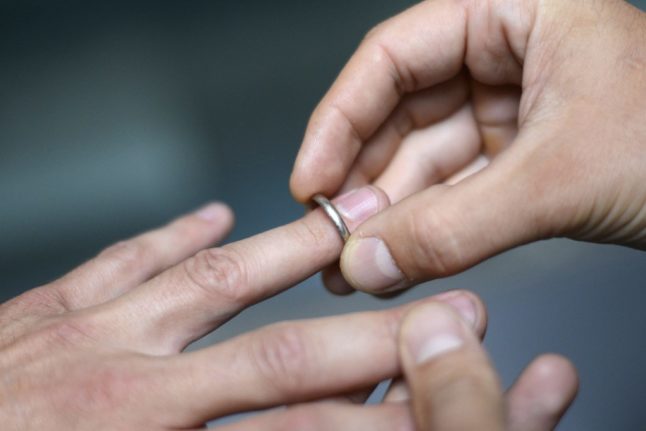Plenty of foreigners move to Austria for love – and hopefully, that love is strong enough to stand the test of not only time – but Austrian bureaucracy.
Even though marriage to an Austrian makes some residence, citizenship, and property buying rules a little easier – there’s still plenty of caveats to be aware of, so it’s best to know exactly what your rights are.
Will Austria recognise my marriage or partnership?
If you and your Austrian partner were married in Austria, this question is pretty straightforward. Your Austrian marriage licence will provide pretty airtight proof of your commitment for the purposes of things like residency.
If you were married abroad though, you may need to bring your foreign marriage certificate to your local authority to be recognised. You will probably also have to provide a certified translation if it’s in a language other than English or German.
Registered partnerships are also recognised under Austrian law for the purposes of family reunification as well as marriage certificates.
Austria also recognises both registered partnerships and marriages between same-sex partners.
EXPLAINED: How to have your marriage abroad recognised in Austria
Residency in Austria
Non-EU partners of Austrian or EU citizens can typically apply for a “Family Member” visa or residence permit to both enter and reside in Austria – provided they have reached the age of 21.
If the non-EU partner has a passport from a country whose nationals enjoy visa-free access to Austria, they can come to Austria without a visa and apply for the residence permit within three months. Otherwise, they’ll need to apply for a Family Visa from their responsible Austrian mission abroad.
The Family Member residence permit is typically valid for 12 months and thus requires regular renewal.
However, it generally comes with unrestricted access to the Austrian labour market. This includes the right to work in Austria without satisfying a labour market test, having to meet a minimum salary threshold, and without having to fulfill a requisite number of criteria under Austria’s points-based immigration system. Holders of this permit are also not limited to working in the area of their education or training, as holders of many other Austrian residence permits are.

Photo by Patrick HAMILTON / AFP
EXPLAINED: How to get married in Austria as a foreigner
Under this permit though, non-EU spouses still have a few things to prove. They’ll have to prove that they and their partner have a monthly income of at least €1,751.56, plus an additional €171.31 for each child they have. They’ll also have to prove that they have accommodation in Austria that’s large enough for their family and have health insurance. Typically though, non-EU spouses can often be easily covered under their Austrian or EU partner’s insurance.
They will also have to prove that they have German language skills at an A1 level – which is the lowest possible level of proficiency in German.
The non-EU spouse will need to provide proof of all these requirements, along with their valid passport, their partner’s passport or other valid proof of nationality, and their marriage certificate.
After five years of continuous residence in Austria, the non-EU spouse can apply for permanent residence in Austria. Once they have permanent residence, a divorce will not affect their eligibility to remain in Austria. However, a non-EU spouse who divorces their Austrian partner may have to leave Austria if they are on the Family Member residence permit. This isn’t always true though. A non-EU partner who divorces their Austrian or EU partner due to abuse may end up being granted the right to stay in Austria.
Divorce in Austria: How the ‘culpability principle’ works and what you need to know about it
Automatic dual citizenship for your kids
If you are married to an Austrian national, any kids you have with them will automatically be entitled to keep both their Austrian passport, plus yours.
Although Austrian nationality law is generally restrictive on dual citizenship, one of the few cases where it is allowed concerns children who are born to both an Austrian and a foreign parent.

Austrian fathers who have children out of wedlock with foreign mothers will typically have to legally acknowledge their children within two months of their birth in order to pass on citizenship. If the couple is married though, an Austrian father will automatically pass on his citizenship to his child without this step.
EXPLAINED: When is dual citizenship allowed in Austria?
Austrian citizenship through marriage
You cannot simply become Austrian by marrying an Austrian citizen.
In fact, you will still have to fulfill the requirements that any other applicant for Austrian citizenship would have to fulfill in order to receive an Austrian passport. This includes B1 German language skills and giving up your previous passport in most cases.
There is one edge non-EU nationals married to Austrians get though – they can apply for Austrian citizenship after a shorter period of residence in Austria.
Although most foreigners aren’t eligible to apply for Austrian citizenship until they’ve been resident in Austria for at least ten years, non-EU nationals married to Austrians can apply after six years – provided they’ve been married for at least five of those previous six years.
If you take the shorter route though, your German will have to be a bit better than the B1 normally expected. You’ll instead have to pass B2 German – one language level higher than normal.
READ ALSO: Five surprising Austrian citizenship rules you should know about
Buying property in Vienna
Foreigners buying property in Austria face a load of hurdles in most cases.
In western states like Tyrol and Vorarlberg, only Austrian and other EU/EEA nationals can buy property. In most of the rest of the country, only foreigners holding permanent residence may buy. Even then, they’ll need to seek approval from their state’s real estate commission – a process that can take many months and deter some sellers from working with foreign buyers.
Styria puts no such restrictions on foreigners. Vienna does, but waives them in once key instance – when the buyers are a married couple where at least one in Austrian.
In these cases, the couple buying property in Vienna don’t need to seek real estate commission approval for the purchase.
READ ALSO: Can foreigners buy property in Austria?



 Please whitelist us to continue reading.
Please whitelist us to continue reading.
Member comments